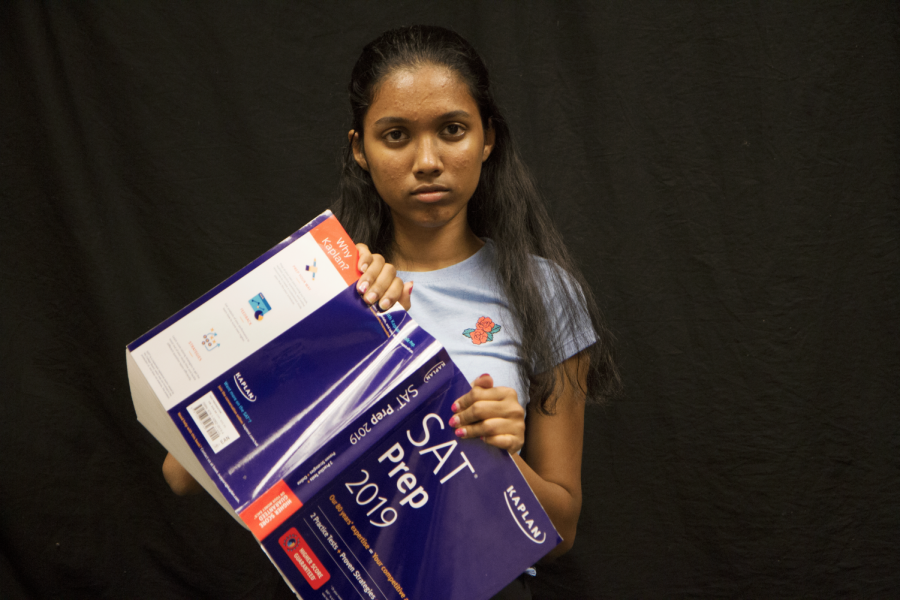College Board Creates Controversy
In My Opinion| Srinidhi Seshadri
October 5, 2018
The only sound I could hear was the scratching of pencils on paper as we vigorously bubbled in our answers. The proctor announced that our time was up, and I leaned back with a sigh of relief. Months of preparation and practice tests had led up to this moment. Just like thousands of other students, I took the SAT this August, but I may have taken my sigh of relief too early. Little did I know that the test I had just spent four hours on was already circulating on the Internet.
The reading and writing section of the August 2018 SAT had already been used in the October 2017 International SAT. Although the October test was not officially released by College Board online, pirated versions still ran in circulation. Some students had used this test to practice, while others had taken it at test prep centers. There were even a handful of students from other countries who had taken the test in October and travelled to the U.S. to retake it since the August test isn’t available internationally. Students who had already read the passages and knew the answers evidently had an unfair advantage.
As I scrolled through Twitter later that day to find SAT memes to de-stress, I noticed a plethora of my peers expressing their fears and worries regarding the test. Many, including me, were afraid that our test scores would be cancelled. For seniors, this would not fare well, as this was the last opportunity we would have to boost our scores before submitting early applications to colleges. This wasn’t my first time taking the SAT, but this was the first time I had ever felt so stressed after taking the test. For days following the SAT, worry that the test I had prepared so hard for would be cancelled plagued my mind. For others, finances were an issue. Taking the SAT isn’t cheap, and having to fork up more money to retake a test because of a mistake made on College Board’s part is extremely unfair.
This isn’t College Board’s first case of widespread fury this year. In June 2018, students went into a frenzy after seeing their test scores. Scores for the math section were much lower than usual because of the curve, which equates test scores based on the level of difficulty in order to maintain fairness. Overall, students were seeing drastically lower scores than they had anticipated in accordance to the number of problems they got wrong, causing an uproar which was expressed all over social media through the hashtag #rescoreJuneSAT.
With so much at stake for us students, College Board should be more proactive in ensuring that testing is consistently fair. The issues faced in both June and August could have been avoided had the company been a little more cautious while compiling questions and passages for the test. In the case of the June SAT, College Board could have used questions that were of a similar difficulty level to most others tests; whereas for the August SAT, it could have found new passages instead of reusing older ones.
If students are required to sign a fairness agreement each time they take an SAT, shouldn’t College Board be held to the same standards? College Board should uphold their promise that tests “are designed to give every student a fair and equitable opportunity” by being more conscious of the effects a lack of test security could have. Increased proactivity on College Board’s part would be beneficial to both the company to maintain its reputation and students in guaranteeing them fair and smooth testing.
Although I did get my score on time and the whole incident is now just an interesting story to tell, College Board should have never reused an old test and needs to establish higher standards to maintain test legitimacy. College Board should be proactive in ensuring that such breaches of test security never occur again.






























































